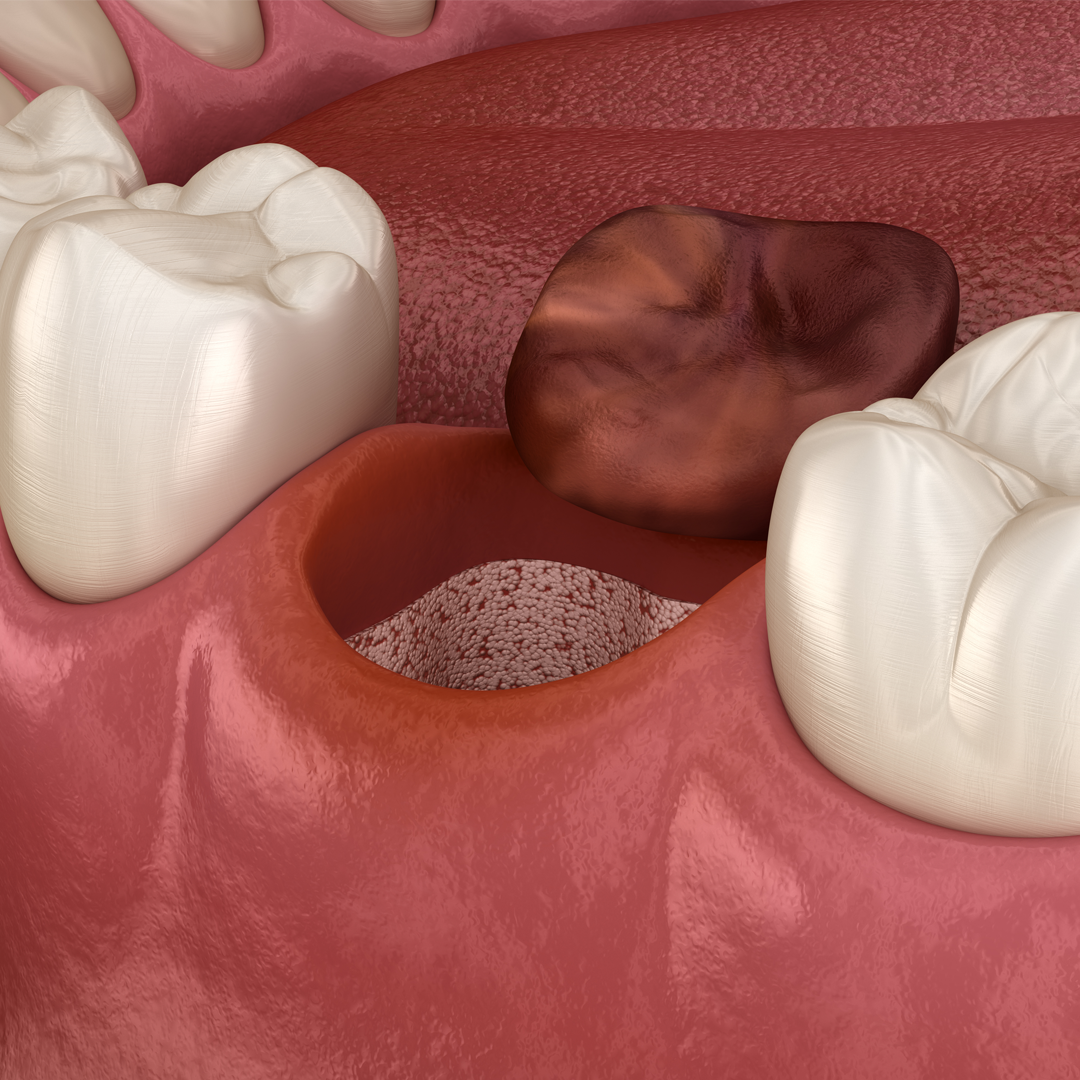Have you ever experienced dry sockets after a wisdom tooth removal procedure? Have you recently got your wisdom teeth taken out and you want to avoid dry sockets as much as humanly possible?
You’ve come to the right place!
We’re going to give you some tips on how to avoid dry sockets after wisdom teeth extractions. But first, let’s start with the basics.
What are wisdom teeth?
Wisdom teeth are the third set of molars and the last set of permanent teeth to erupt, usually during a person’s late teens or early twenties. Oftentimes due to partial eruption, oral surgery to extract wisdom teeth can save a person from symptoms associated with poor hygiene, usually pain and swelling of the surrounding gum tissue as well as dental decay.
What is a dry socket?
While the extraction procedure is a routine surgery, one common problem is the development of dry sockets after wisdom tooth removal. A dry socket occurs when the blood clot covering the extraction site becomes dislodged. This exposes the socket and nerves to air, food, and bacteria.
Dry sockets can range in severity, but can be quite painful. Actions like spitting, swishing really hard, and sucking through a straw (especially on the day of the surgery) can loosen the blood clot, as can suction.
At Oral Surgery Specialists of Atlanta, you can look forward to a relatively comfortable experience with our highly skilled oral surgeons. Schedule a consultation to discuss the procedure and to learn about dental anesthesia options for optimal comfort.
We have office locations in Dunwoody and Atlanta.
Symptoms of a Dry Socket
The number one sign of a dry socket is continued throbbing pain starting 3-5 days following wisdom tooth removal, when you should be improving on a daily basis. Additional symptoms include:
A socket that appears empty (indicating the loss of the blood clot)
Visible bone
Bad breath
Foul taste
Radiating pain in your eye, ear, or temple
You will likely experience some discomfort following an extraction, but continued throbbing pain could indicate a dry socket.
If you experience any of those symptoms, call Oral Surgery Specialists of Atlanta.
How to avoid dry sockets after wisdom teeth extractions
We want you to understand what to expect post-surgery, before coming in for your wisdom tooth extraction. Here are a few tips to help you avoid dry sockets so you can recover quickly after your procedure.
1) Avoid Straws
One of the most common causes of dry sockets is suction from straws. Suction in the oral cavity can easily dislodge the blood clot and expose your nerves. Wait until your extraction site has healed for about 7 days before ordering a drink with a straw.
2) Eat Soft Foods
To promote proper healing, eat the right foods. Soft, easy-to-chew favorites like mashed potatoes and gravy, yogurt, smoothies, applesauce, and broth are all excellent meal options while you’re on the mend. Crunchy treats like nuts and popcorn can dislodge your blood clot and irritate your socket, so stick with a soft diet.
3) Keep the Area Clean
You should always maintain a good oral hygiene routine, but proper dental home care is even more essential during recovery after wisdom tooth surgery. Our expert staff will provide you with instructions on proper brushing techniques after extraction, so you can keep your smile healthy. Please ask questions any time, when you are in the office or after your appointment (by phone or email).
4) Rinse with a Syringe
You will receive a syringe to take home after the procedure. Wait 5 days to make sure a blood clot has formed, then use the syringe to gently rinse food particles from in and around the socket. Prior to using the syringe, you should rinse with salt water after meals, starting the day after surgery. This will prevent debris and bacteria from irritating the extraction site or loosening the clot.
5) Good Health Before Your Extraction
If you’re not feeling your best on the day of your wisdom tooth removal surgery, the best choice is to reschedule. Sneezing and coughing may upset your blood clot, and healing may be slower if you are trying to recover from an additional illness.
6) Rest Up
The best way to heal your body is to rest. Make sure you sleep after your surgery, with your head raised on a pillow. Try to avoid talking too much in the first 24 hours. Exercising can raise your heart rate and cause bleeding complications, so wait to hit the gym until after you’re healed.
7) See an Experienced Oral Surgeon
Greater than average trauma during wisdom tooth surgery can lead to a dry socket later on. It’s important to see an oral surgeon you trust. Our team is not only experienced, but we take every precaution to ensure our patients’ comfort and care. We do everything in our power to achieve optimum treatment results.
8) Avoid Risk Factors
Luckily, only 2-5% of patients develop a dry socket after a wisdom tooth procedure. Minimize your chances by discussing risk factors with our surgeons prior to the extraction. Risk factors include, but aren’t limited to:
Smoking or tobacco use. Not only can the sucking action of smoking a cigarette disrupt the blood clot, but the chemicals in tobacco products can constrict blood vessels and slow down your recovery.
Poor oral hygiene. Continue to brush and floss regularly following your extraction, but only when cleared by our surgeon. Use the provided syringe, as noted earlier in this article, for cleaning. Gum or tooth infection resulting from poor dental care can complicate the healing process.
Improper at-home care. Failure to follow your surgeon’s instructions can lead to a dry socket. We will make sure to explain and provide in writing the necessary care procedures for recovery, before you leave our office.
Previous dry sockets. If you’ve had a dry socket after a previous extraction, let our surgeon know. You may be more likely to develop one again.
Medications. Certain medications like blood thinners or birth control can also increase your risk of developing a dry socket, so be sure to inform our surgeon of all the medications you are currently taking.
9) Stay Hydrated.
Drink 8 glasses of water per day, or more, after surgery. Staying hydrated facilitates healing, so you can resume your normal routine as soon as possible. Avoid caffeinated, carbonated, and alcoholic beverages.
10) Rinse gently with Saltwater.
Gently rinsing out your mouth with salt water a few times a day can help keep the extraction site clean and speed up recovery. Spit out the water gently because forceful spitting can disrupt your blood clot.
For further reading, see our post-operative instructions after wisdom teeth removal.
Treating a Dry Socket
If you do develop a dry socket after your wisdom tooth removal, don’t panic. Dry sockets typically last for 4-5 days, but the pain should begin to subside by around 8-10 days after surgery.
Strategies for treating a dry socket include:
Flushing the socket with saline solution
Using a medicated gauze application into the socket
Taking over-the-counter painkillers (600-800mg Ibuprofen is the most effective, if you are able to take it)
The best thing to do if you have a dry socket is to call us so we can discuss the initial course of treatment with you. It’s possible that you may need to come into the office for us to evaluate the situation and discuss additional treatment options with you.
Schedule your wisdom tooth removal appointment in Atlanta or Dunwoody
If you need wisdom teeth removed, do your part to avoid a dry socket. At Oral Surgery Specialists of Atlanta, our compassionate team will go above and beyond to make sure you feel completely comfortable.
Dr. Andrew Aiken and Dr. Drew Shessel are trained to administer several different anesthesia techniques for your optimal comfort. To schedule a consultation or a second opinion contact us online or call our office at 404-738-5659 or our Dunwoody office at (470) 300-2616 today!







